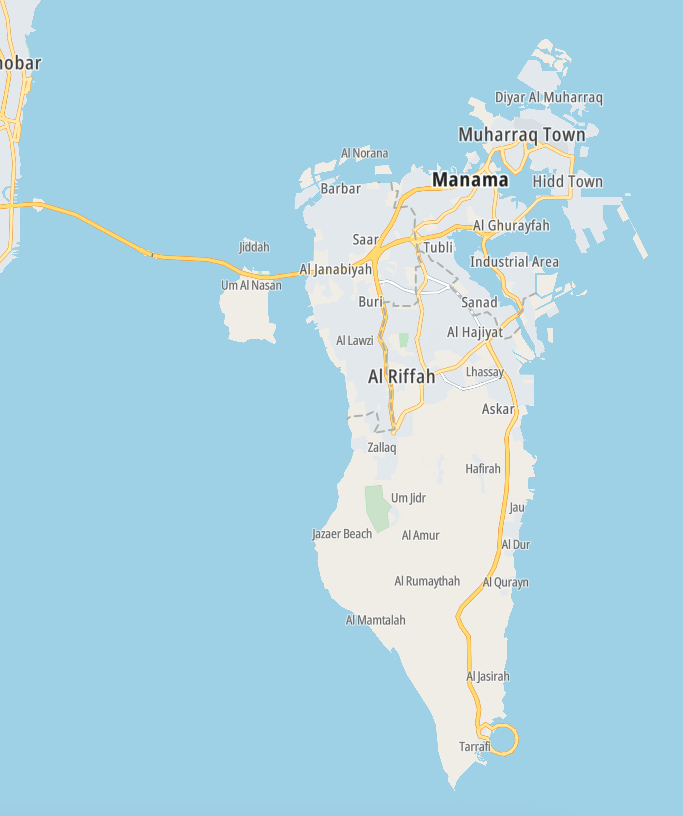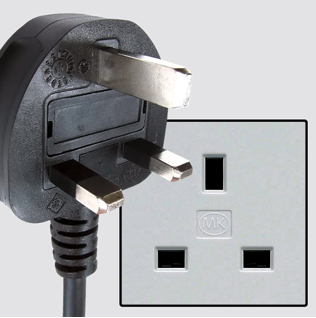Bahrain / مملكة البحرين – Let’s explore here
What’s it like in Bahrain?
Bahrain is a beautiful island country in wetern Asia close to Saudi Arabia and Qatar. It’s about twice the size of the Isle of Wight, England, UK, being approximately 30 miles (48 km) long and 10 miles (16 km) wide.
It’s actually a set of about fifty islands, plus over thirty artificial islands. As an island country, it doesn’t have any land borders, although the 15 mile long King Fahd Causeway connects Bahrain to Saudi Arabia.
It’s a very hot and very flat country, mostly composed of desert. The highest point is the Jabal al Dukhan hill (also known as the Mountain of Smoke), located in the middle of the country, at 440 ft (134m) above sea level.
The population of Bahrain is around 1½ million people (2021), with almost half living in the metropolitan area around the capital city, Manama. It relies heavily on its oil and gas reserves, as well as its finance industry.



A bit about the history of Bahrain
Early History and Ancient Civilisations
Bahrain has a rich history that dates back to ancient times. It was known in antiquity as Dilmun, a trading hub and an important center of the ancient world. Dilmun was mentioned in Sumerian, Akkadian, and Assyrian texts as a vital part of trade networks, particularly for goods such as copper and dates. The island’s strategic location in the Persian Gulf made it an important cultural and economic center.
Persian and Islamic Rule
In the 6th century BC, Bahrain became part of the Persian Empire under the Achaemenids. Over time, the region came under the control of various empires, including the Parthians and Sassanids. The region was later introduced to Islam in the 7th century when it became part of the Rashidun Caliphate following the spread of Islam across the Arabian Peninsula.
Medieval and Ottoman Periods
After the rise of Islam, Bahrain was ruled by various Islamic dynasties, including the Umayyads, Abbasids, and later, the Qarmatians, who established a powerful movement in the 9th century. The Qarmatians controlled Bahrain for several centuries and were known for their religious radicalism. By the 16th century, the island came under the control of the Portuguese, who sought to dominate the Persian Gulf. In the 17th century, the Safavids of Persia took control, and in 1717, the Al Khalifa family, originally from the Arabian Peninsula, established their rule over Bahrain.
British Protectorate and Modernisation
In the 19th century, the Al Khalifa family sought British protection against regional rivals and local uprisings. In 1861, Bahrain became a British protectorate, which significantly influenced its political and economic development. Under British influence, Bahrain transitioned from a pearl fishing economy to a petroleum based one after the discovery of oil in 1932, marking the beginning of its modern economic development.
Independence and Modern Politics
Bahrain gained its independence from Britain in 1971, following the end of the British Empire’s influence in the Persian Gulf. The island nation became a constitutional monarchy under the leadership of the Al Khalifa family. Over time, Bahrain made efforts to modernise its economy and society, though it continued to be a highly centralised state with significant political power held by the ruling family.
The Bahrain Uprising and Arab Spring
In 2011, Bahrain was the site of large scale protests inspired by the Arab Spring, with calls for greater political freedom, human rights, and democratic reforms. The protests were met with a heavy security response, and the government, supported by the Gulf Cooperation Council (GCC), cracked down on demonstrators. Tensions between the ruling Sunni monarchy and the Shia majority population have remained a significant issue in the country’s politics.
Contemporary Bahrain
Today, Bahrain is a small but prosperous country, with a diverse economy that includes banking, finance and manufacturing. The country has also become a major player in the Gulf region due to its economic strength and strategic location. However, Bahrain continues to face challenges, including political unrest, tensions between Sunni and Shia populations, and calls for greater political reforms. The Al Khalifa family remains in power, and Bahrain’s political system continues to be characterised by a mix of traditional monarchic rule and modern political structures.
Despite these challenges, Bahrain has maintained its importance as a financial hub in the region and continues to play a key role in regional affairs, particularly through its strong ties to Saudi Arabia and the United States.

Bahrain road trip
Map of Bahrain

On our Bahraini road trip we’ll be travelling from Qatar through Saudi Arabia to the capital, Manama, before doubling back to Saudi Arabia.
Hopefully this will improve our knowledge of this intriguing and beautiful country, and enable us to meet some interesting people. We’ll be updating this page at that time – don’t forget to check back 🙂
What’s it like to drive in Bahrain?
They drive on the right hand side of the road in Bahrain. In the main, roads are quite good. Driving standards are also quite good.
Do you require an international driving permit in Bahrain?
We’ve created a dedicated page to driving abroad, which answers this question, and more, which you might find helpful.
Can you use your UK driving license when driving through Bahrain?
We’ve created a dedicated page to driving abroad, which answers this question, and more, which you might find helpful.
Do I need a carnet de passages to drive in Bahrain?
We’ve created a dedicated page to driving abroad, which answers this question, and more, which you might find helpful.
What currency do they use in Bahrain?
In Bahrain they use the Bahraini Dinar. Cash is widely used. The use of credit / debit cards is very widely accepted. Travellers cheques are also readily accepted. There are many ATMs in cities and towns throughout the country.
You should make yourself aware of the amount that your bank charges you for using credit and debit cards abroad. Often credit cards are cheaper for purchasing items directly, and for withdrawing cash from ATMs.
What language do they speak in Bahrain?
They speak Arabic in Bahrain. English is also widely spoken.
What time zone is Bahrain in?
Remember, when you’re planning your next trip to take a look at what time zone it’s in.
Do I need a visa to visit Bahrain?
We’ve created a dedicated, more comprehensive page on visas, which you should find helpful. Check it out!
Is wild camping legal in Bahrain?
Yes, wild camping is fine in Bahrain.
What plug / socket type do they use in Bahrain?

In Bahrain they use plug / socket type G.
Health issues in Bahrain
Is it safe to drink water in Bahrain?
Yes, it is safe to drink tap water in Bahrain. Bottled water is also readily available throughout the country.
What vaccinations are required for Bahrain?
This NHS website is kept up to date with all relevant information on vaccinations in Bahrain.
Phones in Bahrain
What is the country calling code for Bahrain?
The country calling code for Bahrain is +973
What are the emergency phone numbers in Bahrain?
- The emergency number for police in Bahrain is: 999
- In Bahrain, the emergency number for ambulance is: 999
- The emergency number for fire in Bahrain is: 999
If you’ve got some useful info that you’d like to share, let us know!
And don’t forget to check out all the other pictures!
